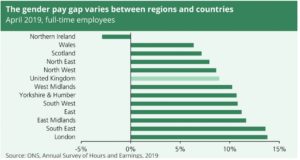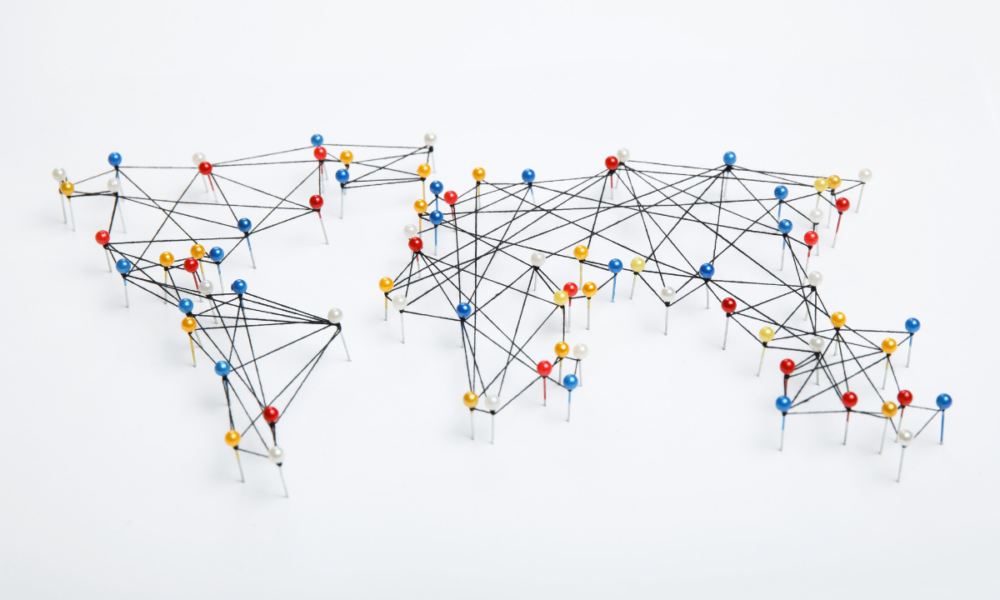Gender equality is foregoing the global economy a whopping USD12 trillion in additional GDP, according to the McKinsey Global Institute. The public, private, and social sectors will need to act to close gender gaps in work and society. But are recruitment agencies contributing to this earning potential or working against it through ‘unintentional bias’?
“If women—who account for half the world’s working-age population—do not achieve their full economic potential, the global economy will suffer,” writes McKinsey in its report, The power of parity: How advancing women’s equality can add $12 trillion to global growth. That’s £9.36 trillion!
In a “full potential” scenario in which women play an identical role in labour markets to that of men, as much as £21.8 trillion (USD28 trillion) or 26 percent, could be added to global annual GDP by 2025.
In 2019 the gender pay gap was 17.3% in the UK, which means that on average, women were paid approximately 83p for every £1 men were paid, according to the House of Commons Library.
The conflict of bias will often impede the recruitment selection process for female candidates, regardless of their track records and skillsets, says McKinsey.
The divide in the gender pay gap is also dependent on region and country, according to the Office of National Statistics, which means agencies in areas that represent a wider divide have their work cut out for them.


If agencies are unintentionally biased, clients could be losing out on getting the best candidate. In McKinsey’s research one executive that participated in a study noticed that a list of “high potentials” in their company had notably few women on it. Curious as to why, their team looked at the relevant performance reviews, and found that women in equivalent positions to those in the high-potential group also had similar performance records.
Why, then, were these women not considered “high potential”? The answer, according to the report, was that they had “mistakenly been overlooked”.
Agencies, if they haven’t already, should adopt unbiased candidate practices. Technology can help. Apps such as the UK’s Jobseekrs and US-based Blendoor, have been developed for unbiased recruitment, enabling recruiters to bring a much more diverse candidate base to their clients, all of which is based on merit.
For those UK and Australian agencies serving industries with a male-dominated workforce, such as construction, engineering, and STEM industries, a ‘my hands are tied’ mentality will be too easy a stance to take when it comes to acting out on the gender pay gap when it is spotted. And here is why. When an agency asks ‘what’s your current or last salary,’ this is where agencies may be inadvertently adding fuel to fire if female candidates have historically been paid less than male candidates. The lower pay cycle for women continues, which is hurting household finances.
Will agencies feel compelled to turn a blind eye, just try to get their client the best candidate for the lowest salary (even if they know the candidate is worth much more but remunerated less because of gender)? Will agencies have discussions with their clients to ensure they are addressing the gender pay gap and if so, what is the process in addressing it?
Potentially, if an agency or client hires a female candidate and that candidate finds out that she is paid substantially lower than colleagues in a similar role, with similar skills and experience, then by not addressing the pay gap, an agency could potentially be an accomplice to the continuance of a client’s gender inequality standards. Or worse, the agency could be brought into an employment tribunal.
If recruitment agencies want to be part of the solution to eliminate gender pay inequality, then they must also look at the true cost of gender inequality’s effect on their business and reputation. They must take a public stance, backed up with proof and testimonials, that they are ensuring that they are looking out for female candidates in the salary negotiation process. This is altruistic, of course when it comes to presenting an inclusive brand in the recruitment sector, but when client brands are also aligned to gender equality, then everyone wins.
ETZ is always keen to bring to light new ways to save on avoidable costs for existing and emerging recruitment agencies. To learn how we might be able to help your agency save up to 85% in back-office support, video call us or book a demo today.


The ‘golden age’ of software automation Software automation is enjoying something of a ‘golden age’. The trend for using technology...
Read more

Will the real Outsourcing 2.0 please stand up? In the employment market recruitment process outsourcing (RPO) has become a prominent...
Read more

Digital transformation slowed or stalled for some recruiters The process of digital transformation (DT) is the integration of digital technologies...
Read more